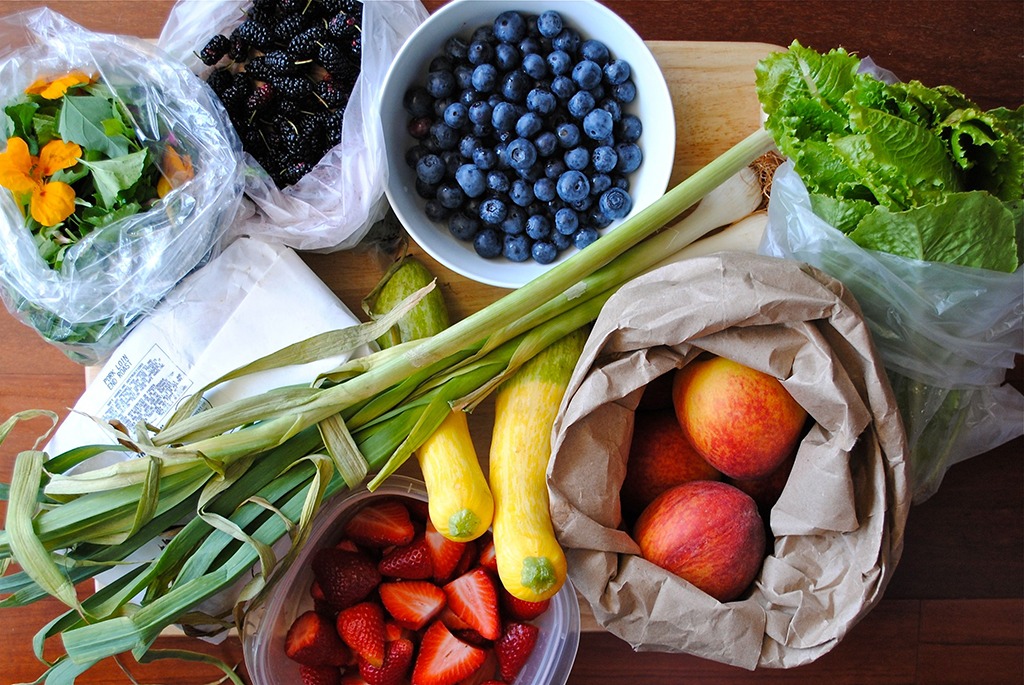Ensuring that children receive proper nutrition is a fundamental aspect of their growth and development. In 2024, with a wealth of nutritional knowledge available, it's essential to focus on wholesome and balanced food choices. Let's explore the key components of good nutrition food for kids in 2024.
Understanding the Foundations of Good Nutrition Food for Kids in 2024

Balanced Meals: A Cornerstone of Growth
As we navigate the nutritional landscape in 2024, the importance of balanced meals for children remains fundamental. A well-rounded diet that includes a mix of macronutrients—carbohydrates, proteins, and healthy fats—is crucial for their growth and development. This approach ensures that children receive the diverse range of nutrients necessary for optimal health.
Incorporating a variety of food groups is key. Fruits and vegetables should be vibrant and plentiful on the plate, providing essential vitamins, minerals, and fiber. Whole grains offer sustained energy, and lean proteins contribute to muscle development and repair. Including healthy fats from sources like avocados, nuts, and olive oil supports brain function and overall well-being.
Plant-Powered Diversity: A Growing Trend in Kids' Nutrition

Embracing the Rise of Plant-Based Diets
In 2024, the trend of embracing plant-based diets has extended to children's nutrition. Plant-powered diversity is not just a choice for adults; it's becoming a cornerstone of kids' diets as well. Introducing a variety of plant-based foods—fruits, vegetables, legumes, and whole grains—ensures that children receive a spectrum of nutrients while fostering a taste for diverse and nutritious foods.
The benefits of plant-based eating for children are multifold. Plant-based diets tend to be rich in antioxidants, fiber, and essential vitamins, promoting not only physical health but also a robust immune system and digestive well-being. Encouraging children to appreciate the colors and flavors of plant-based foods sets the stage for a lifetime of healthy eating habits.
Smart Snacking: Nourishing Energy Between Meals

Redefining Snack Time with Nutrient-Rich Choices
Snacking has undergone a transformation in 2024, shifting towards nutrient-rich options that provide sustained energy between meals. Parents are encouraged to redefine snack time by offering fresh and wholesome choices. Fresh fruits, cut vegetables, and whole-grain crackers make excellent snacks, providing vitamins, minerals, and fiber.
Incorporating protein-rich options into snacks further enhances their nutritional value. Yogurt with fruit, cheese, or nut butter on whole-grain toast are not only delicious but also contribute essential nutrients like calcium, protein, and healthy fats. These smart snacking habits ensure that children receive the necessary energy for their active lifestyles without compromising on nutritional quality.
Hydration Awareness: Cultivating Healthy Habits

The Importance of Staying Hydrated
In 2024, cultivating healthy hydration habits for children is a key focus. Water, often overlooked, plays a vital role in overall health. Encouraging children to drink an adequate amount of water supports digestion, helps maintain concentration, and contributes to overall well-being.
To make hydration more appealing, consider using colorful cups or fun water bottles. Infusing water with slices of fruits like citrus or berries adds a touch of natural flavor, making it an enjoyable and refreshing choice. By instilling the importance of hydration early on, parents contribute to the development of a healthy habit that will benefit children throughout their lives.
Omega-3s for Brain Health: Fostering Cognitive Development

Incorporating Essential Fatty Acids into Kids' Diets
In the realm of cognitive development, the focus in 2024 is on the incorporation of omega-3 fatty acids into children's diets. Omega-3s, found in fatty fish like salmon and mackerel, as well as in walnuts, chia seeds, and flaxseeds, play a crucial role in brain health.
These essential fatty acids contribute to the development of the central nervous system, support cognitive function, and may even enhance learning abilities. Introducing omega-3-rich foods into children's diets ensures that they receive the nutritional building blocks necessary for optimal brain development, a key consideration in the evolving landscape of kids' nutrition.
Minimizing Sugars and Processed Foods: Navigating Healthy Choices

A Prudent Approach to Added Sugars and Processed Foods
In 2024, the need for a prudent approach to added sugars and processed foods remains a priority. Excessive sugar intake has been linked to various health issues, including obesity and dental problems. Parents are advised to navigate healthy choices by opting for natural sources of sweetness, such as fresh fruits, and limiting processed snacks.
Reading food labels becomes increasingly important in making informed decisions about the nutritional content of packaged foods. Identifying and minimizing added sugars in children's diets contribute to their overall health and well-being, aligning with the evolving understanding of the impact of diet on long-term health.
Boosting Immunity Naturally: Nutrients for Resilient Health

Vitamins and Minerals for a Robust Immune System
2024 highlights the importance of supporting children's immune systems through a nutrient-rich diet. Including foods rich in essential vitamins and minerals strengthens their natural defense mechanisms. Citrus fruits like oranges and berries, leafy greens, and fortified dairy products provide vitamin C and vitamin D, contributing to robust immunity.
This focus on natural immune support aligns with the ongoing research on the connection between nutrition and immune function. As parents prioritize foods that enhance their children's immune resilience, they contribute to their overall health and well-being.
Encouraging Positive Eating Habits: A Holistic Approach

Fostering a Healthy Relationship with Food
In 2024, a holistic approach to children's nutrition includes fostering positive eating habits. Parents are encouraged to create a positive food environment by involving children in meal preparation. This hands-on approach not only instills a sense of ownership over their food choices but also educates them about the importance of different food groups.
Creating visually appealing dishes, experimenting with flavors, and offering a diverse range of options contribute to a positive eating experience for children. Encouraging mindful eating practices, such as savoring each bite and paying attention to hunger and fullness cues, further cultivates a healthy relationship with food that extends beyond nutritional content.
Conclusion
Good nutrition food for kids in 2024 revolves around creating a foundation of health through a diverse and balanced diet. By prioritizing nutrient-rich foods, embracing plant-based choices, and cultivating positive eating habits, parents can set the stage for their child's overall well-being. Stay informed, get creative with meal planning, and enjoy the journey of nourishing your child for a healthy and vibrant future.
FAQs
Q. How can I incorporate plant-based foods into my child's diet in an appealing way?
Ans: Include a variety of colorful fruits and vegetables, try plant-based protein sources like beans and tofu, and experiment with creative and tasty plant-based recipes that appeal to your child's palate.
Q. What are some smart snacking options that provide sustained energy?
Ans: Choose snacks with a combination of protein, fiber, and healthy fats. Examples include apple slices with nut butter, yogurt with granola, or whole-grain crackers with cheese.
Q. How can I encourage my child to drink more water?
Ans: Make water accessible and fun by using colorful cups or water bottles. Consider adding slices of fruits like citrus or berries for a hint of natural flavor. Setting a good example by drinking water yourself is also helpful.
Q. What are some kid-friendly recipes that incorporate omega-3-rich foods?
Ans: Create dishes like baked salmon bites, chia seed pudding with fruit, or incorporate flaxseeds into smoothies. Make the recipes visually appealing and enjoyable for your child.
Q. How can I limit added sugars in my child's diet?
Ans: Opt for whole fruits over fruit juices, choose unsweetened snacks, and carefully read food labels to identify and limit added sugars in packaged foods. Encourage the natural sweetness of fruits as a healthier alternative.